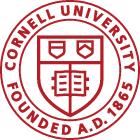- News and articles
- Find usIDP AustraliaIDP BahrainIDP BangladeshIDP CambodiaIDP CanadaIDP ChinaIDP EgyptIDP GhanaIDP Hong KongIDP IndiaIDP IndonesiaIDP IranIDP JordanIDP KenyaIDP KoreaIDP KuwaitIDP LebanonIDP MalaysiaIDP MauritiusIDP Middle EastIDP NepalIDP New ZealandIDP NigeriaIDP OmanIDP PakistanIDP PhilippinesIDP Saudi ArabiaIDP SingaporeIDP Sri LankaIDP Taiwan, ChinaIDP ThailandIDP TurkeyIDP UAEIDP VietnamIDP Corporate
- Social
- English
- Where we operate
- Courses
- Scholarships
- IELTS
- About IDP
- Student Essentials
- News and articles
- Find us
- Find us
- Find nearest IDP offices
- IDP Australia
- IDP Bahrain
- IDP Bangladesh
- IDP Cambodia
- IDP Canada
- IDP China
- IDP Egypt
- IDP Ghana
- IDP Hong Kong
- IDP India
- IDP Indonesia
- IDP Iran
- IDP Jordan
- IDP Kenya
- IDP Korea
- IDP Kuwait
- IDP Lebanon
- IDP Malaysia
- IDP Mauritius
- IDP Middle East
- IDP Nepal
- IDP New Zealand
- IDP Nigeria
- IDP Oman
- IDP Pakistan
- IDP Philippines
- IDP Saudi Arabia
- IDP Singapore
- IDP Sri Lanka
- IDP Taiwan, China
- IDP Thailand
- IDP Turkey
- IDP UAE
- IDP Vietnam
- IDP Corporate
- Social
- Language Switcher
- IDP Education /
- Colleges and Universities /
- United States /
- Cornell University /
- Doctor of Philosophy in Soc...


Location
United States
Qualification
Ph.D.
Fees
USD24800
(2025)
Duration
6 Semester(s)
Next intake
26 August 2025
Entry Score
8.0
IELTSCourse info
After completing the required course sequence in the first year, students take two concentration examinations (one for each area of concentration) and then develop a Qualifying Paper. The Qualifying Paper should be a solo-authored research paper that could be revised and submitted to a journal for publication. After the paper is drafted, students are prepared to apply for Admission to Doctoral Candidacy. Students in full-time residence are normally expected to take the examination for Admission to Candidacy in the summer prior to the third year or in the fall of their third year. This examination is followed by the dissertation prospectus, the dissertation, and the oral defense of the dissertation.
Like families, organizations are important social institutions. This area is designed to increase students knowledge and mastery of a range of organizations, including business firms, non-profit organizations, and government bodies. Going along with that, students are expected to understand the nature of experiences with these institutions (e.g., among workers or employees within firms) and how organizations interface with other social institutions (e.g., the family). Students learn theories (e.g., about the role that social networks play and guiding people into occupations, or how organizations form ties with each other) and become familiar with the methods that are required to study these processes (e.g., social network analysis).
- Scholarships
- Internships
Course fees are indicative and should be used as a guide. to get an accurate price.
Duration: 6 Semester(s)
Fees: USD24800
| Intake | Location |
|---|---|
| Fall (August), 2025 | Ithaca |
Entry requirements for Cornell University
Academic Statement of Purpose
Personal Statement
Writing Sample
College Transcript(s)
Resume or CV
Two (2) Letters of Recommendation
GRE Scores
Academic Statement of Purpose
8.0 or higher on the ILETS or the following minimum scores for the TOEFL iBT:
Speaking: 30
Reading: 24
Listening: 22
Writing: 24
Application Deadline
The application deadline isn't available Speak to an IDP counsellor for more detailed information
Further information
If you aren't eligible for the above entry requirements, you might ant to explore pathway options at Cornell University. If you want to find out more, speak to our counsellors.
THE World Ranking
20th / 1250
THE World RankingWhat our students think
We’ve haven’t received any reviews for this institution yet.
Recommended for you
- THE World Ranking:251
- Ph.D.
- Virginia Beach , United States
- Next intake:08/2024
- Entry Score: IELTS 6.5
- USD30699 (2025)
- THE World Ranking:801
- Ph.D.
- Melbourne , United States
- Next intake:05/2025
- Entry Score: IELTS 6.5
- USD23368 (2025)
- THE World Ranking:601
- Ph.D.
- Chicago , United States
- Next intake:05/2025
- Entry Score: IELTS 6.5
- USD52190 (2025)
- Ph.D.
- Kent , United States
- Next intake:05/2025
- Entry Score: IELTS 7.0
- USD17982 (2025)
- THE World Ranking:601
- Ph.D.
- Houston , United States
- Next intake:05/2025
- Entry Score: IELTS 6.0
- USD23486 (2025)
- Ph.D.
- Denton , United States
- Next intake:05/2025
- Entry Score: IELTS 6.0
- USD32160 (2025)
- THE World Ranking:251
- Ph.D.
- Virginia Beach , United States
- Next intake:05/2025
- Entry Score: IELTS 6.0
- USD31690 (2025)
- THE World Ranking:401
- Ph.D.
- Syracuse , United States
- Next intake:05/2025
- Entry Score: IELTS 6.0
- USD35010 (2025)
Your action plan
Step 1
Shortlist your courses
Choose the best three courses you’re most likely to pursue.
Step 2
Check your eligibility
Get an instant in-principle offer for courses with the IDP FastLane tag.
Step 3
Apply through IDP Live
Fill out the form once and use it to apply to multiple courses.
How does IDP FastLane work?
With the FastLane 'Offer in Principle', you'll know in minutes if you'll be accepted!
Select an institution and course
Create your academic profile
Submit your application for an 'Offer in Principle'
Your chosen institution(s) will send you a decision in minutes!
Get ready to apply with an expert counsellor




